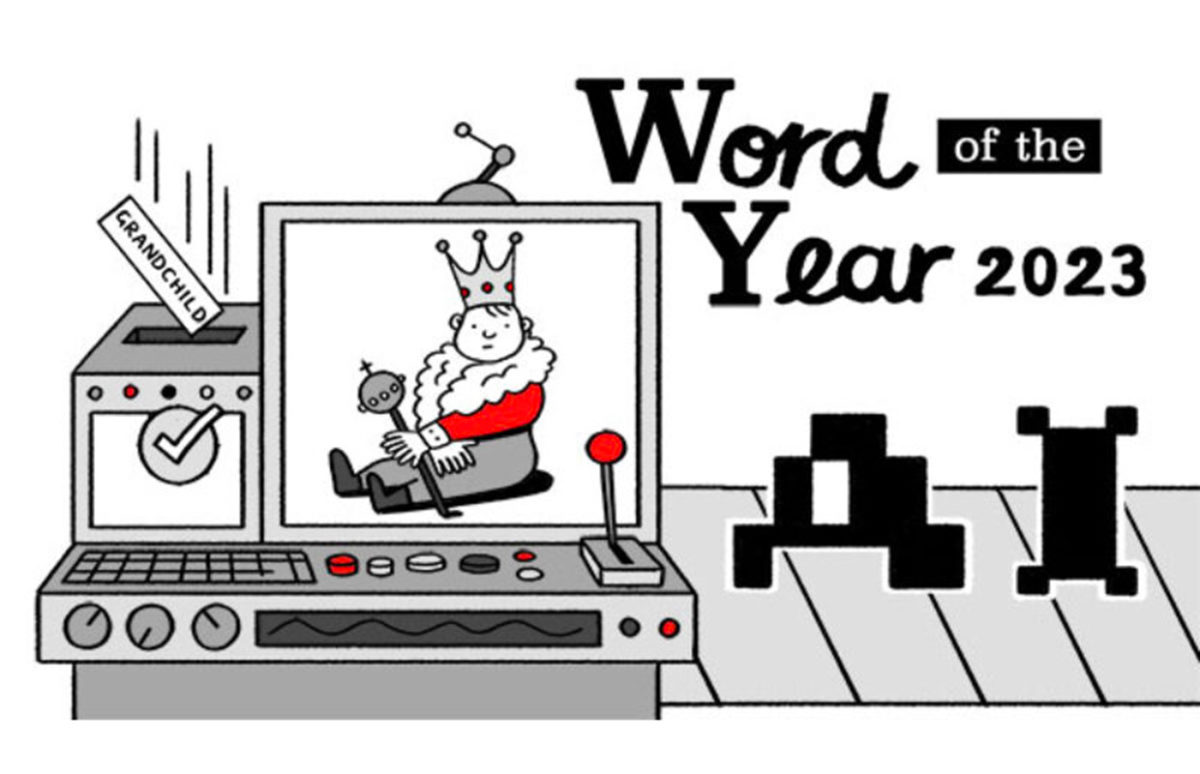'Tis the season for various dictionaries to reveal their “words of the year”. It has been the word on everyone's lips, so it's not surprising that the UK's Collins Dictionary, as well as Australia's Macquarie Dictionary people's choice was AI. But we came across a few we were unfamiliar with, such as "rizz" and "cozzie livs" and we set out to discover more.
Collins defines artificial intelligence, as “the modelling of human mental functions by computer programs.” Ever since ChatGPT was released by OpenAI for public use in December 2022, AI has been on everybody’s lips. And debate has raged about whether many human activities may be phased out by the machines. Along with the long-running strikes by Hollywood screenwriters and actors, in part about their fears of being replaced by AI, and the shock sacking, and then reinstatement, of Sam Altman, as CEO of OpenAI in November, AI has dominated headlines.
Cambridge Dictionaries stayed in the theme, choosing the verb hallucinate but specifically in its meaning “When an artificial intelligence hallucinates, it produces false information.”
For instance, in an example given by Satyen K Bordoloi in an article for sify.com in July, ChatGPT answered a question with the obviously nonsensical (to a human eye): “The world record for crossing the English Channel entirely on foot is held by Christof Wandratsch of Germany, who completed the crossing in 14 hours and 51 minutes on August 14, 2020.”
In this video, Dr Henry Shevlin, an AI Ethicist and Philosopher at the University of Cambridge, discusses what it means for AI to hallucinate and muses over the word we have collectively chosen to describe it:
“It's striking to me that of all the words we could have collectively decided on to describe the mistakes that large language models make we went with 'hallucinate' when existing computer-specific terms like 'glitches' or 'bugs' could have perfectly sufficed. Perhaps we chose this vivid psychological verb because it's so easy to anthropomorphise these systems treating them as if they have minds of their own.”
Getting Real
The Merriam-Webster dictionary in the U.S.A., which chooses its WOTY based on the words most frequently looked up, went with authentic, saying, “Authentic is what brands, social media influencers, and celebrities aspire to be. And with the rise of artificial intelligence—and its impact on deepfake videos, actors’ contracts, academic honesty, and a vast number of other topics—the line between “real” and “fake” has become increasingly blurred.”
Check out discussions on our tendency to anthropomorphise – specifically feminise – robots and vocal assistants in Shine Bright LLCER File 3 Brave New Women, and how technologies question the very notion of humanity in Shine Bright AMC File 3 Humans 2.0. In Shine Bright 3e, SnapFile 11 Twist and Tell is discusses whether deepfakes can ever be used for good.
New words
Neither AI nor hallucinate are new, whereas Oxford Dictionaries went with rizz, a new coining derived from the middle of “charisma”.
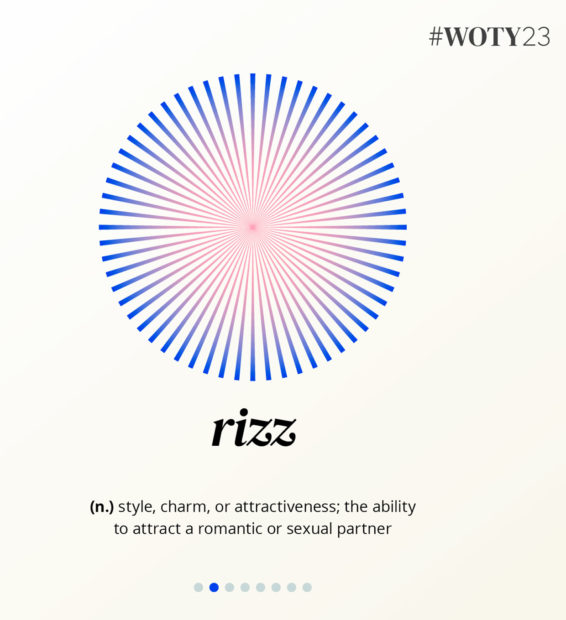
Usage of the word rocketed it when Spider-man actor Tom Holland used it in an interview and the quote swiftly became a meme.

Another new coining was Australia's Macquarie Dictionary’s committee choice: cozzie livs.
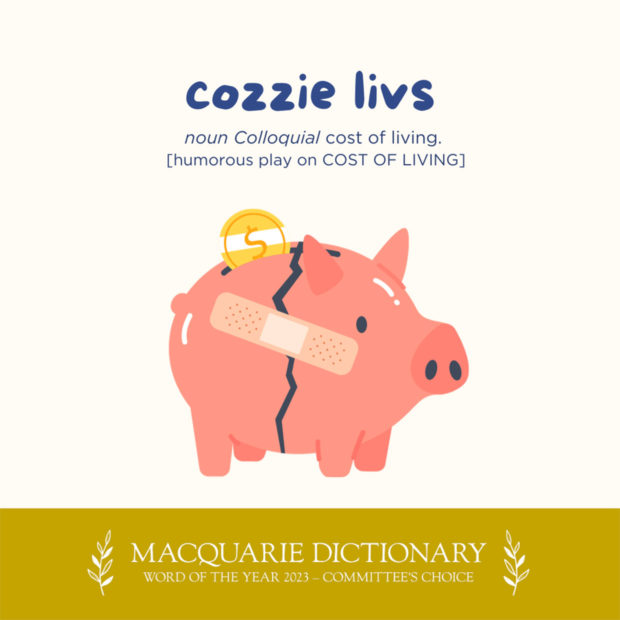
The cost-of-living crisis has of course been big news everywhere this year. Collins included a linked word in its shortlist: greedflation.
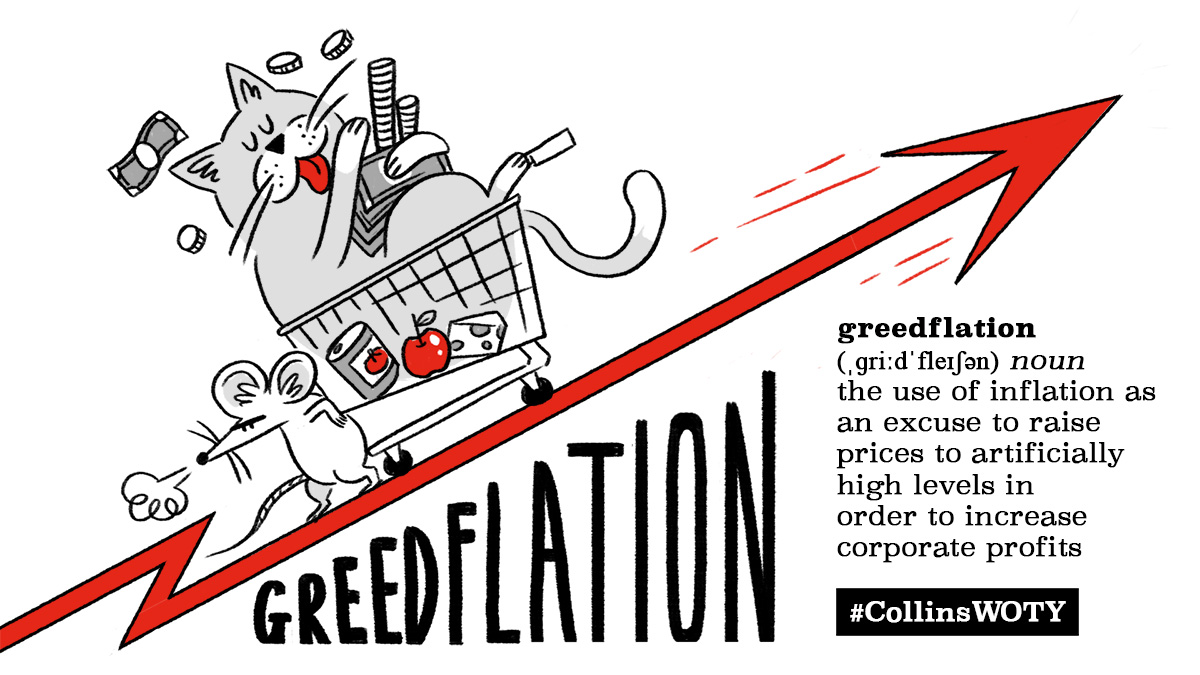
A practice which could lead to another shortlisted concept, deinfluencing.
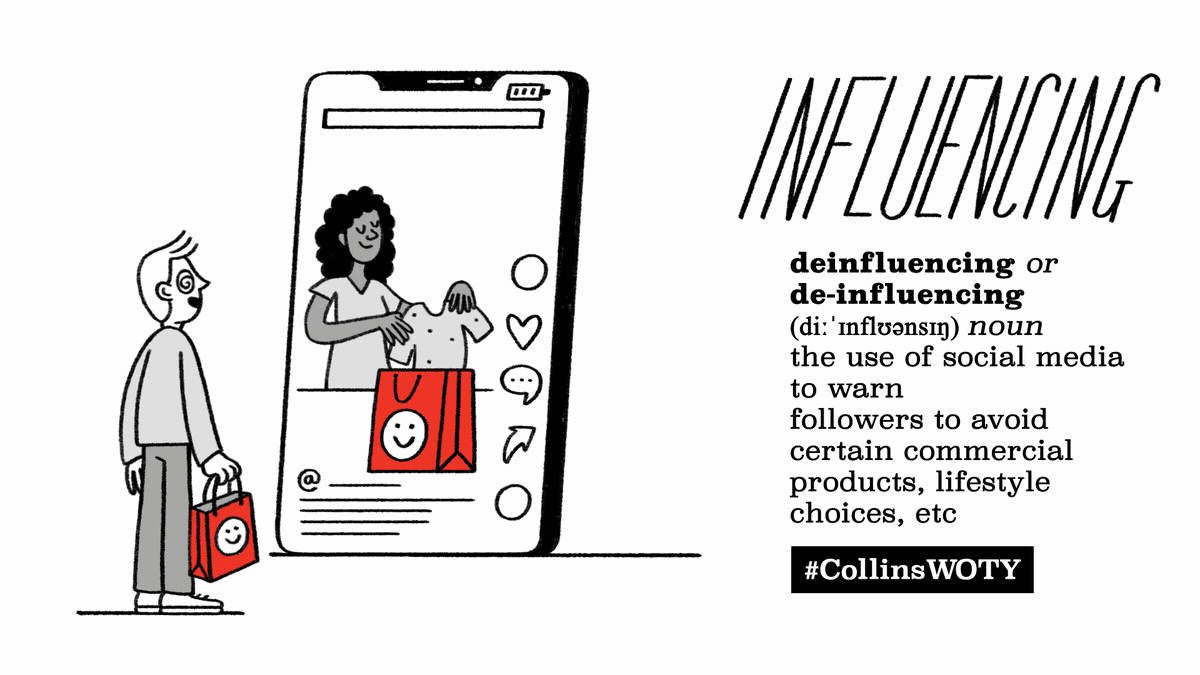
Meantime, the Australian National Dictionary Centre, at the Australian National University, chose as its word of the year Matildas, the nickname of the country’s women’s football team, whose popularity soared during the FIFA Women’s World Cup co-hosted by Australia and New Zealand this summer. The team attracted enormous support, and enthusiasm barely waned even when they were knocked out in the semi-finals. Their distinctive nickname comes from the country’s unofficial national anthem, “Waltzing Matilda”. The Matildas also made news for a viral video calling for equal pay with the men’s Socceroos team (which is currently 25th in world rankings whereas the Matildas are 11th).
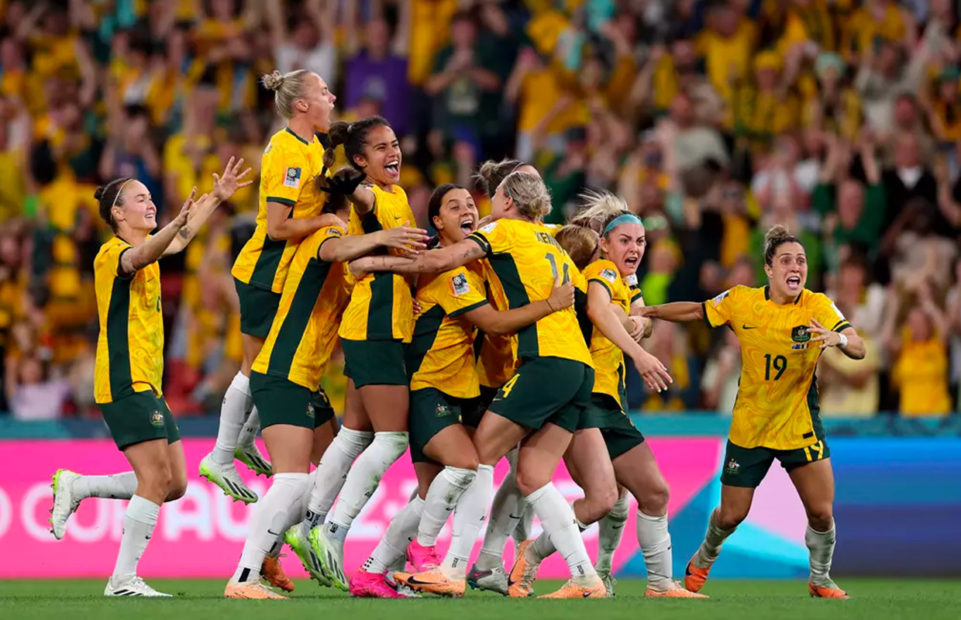
Copyright(s) :
#CollinsWOTY
OUP
Macquarie Dictionary
FIFA
> Teaching with Adverts: Women’s Football
Tag(s) : "AI" "artificial intelligence" "Australia" "cost of living" "deep fake" "dictionary" "football" "inflation" "language" "Matildas" "Shine bright 3e" "Shine Bright AMC" "Shine bright LLCER" "social media" "word of the year"





